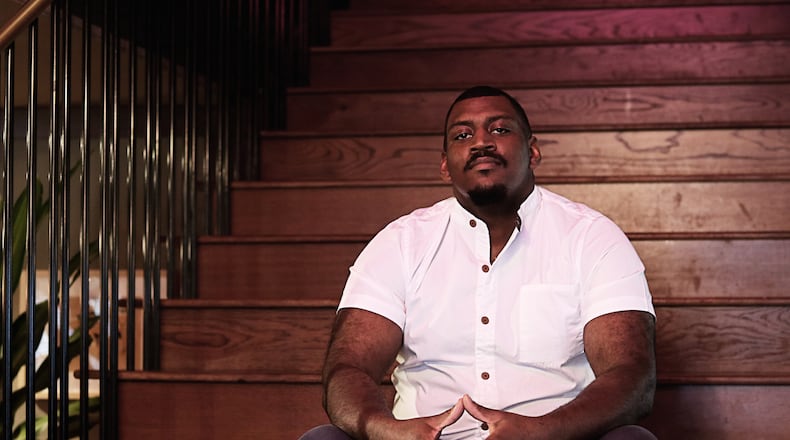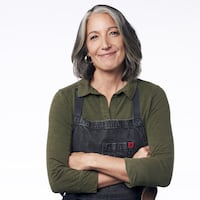In the past few weeks, a handful of Black culinarians made the news, with announcements of their hiring or promotion to top positions at prominent metro Atlanta restaurants.
Jon Novak and Charmain Ware were named executive chef and pastry chef, respectively, at Tiny Lou’s. Robert Butts was elevated from chef de cuisine to executive chef at Deborah VanTrece’s Twisted Soul Cookhouse & Pours. Fifth Group promoted Dontrell Ham from sous chef for South City Kitchen Buckhead to executive chef of the Vinings location, while Hobnob announced that Catherine Dill, who has been leading the kitchen brigade at the Halycon location, will do the same when the restaurant debuts in Atlantic Station in early March.
In the five and a half years that I have covered the restaurant scene for The Atlanta Journal-Constitution, I don’t recall such a flurry of hires of people of color for leadership positions.
That stands in contrast to a 2016 story that I wrote about racial inequity in the restaurant industry. The tone then among numerous Black chefs in Atlanta was one of deep-seated frustration, as they shared stories of being passed over for job promotions due to the color of their skin; a lack of growth opportunities, leadership positions and merit recognition; limited access to capital; and a need for mentorship.
“Black chefs in Atlanta see a gap between dream and reality,” was the headline for that story. The announcements of the past few weeks may be evidence that the gap is closing.
Credit: handout
Credit: handout
“Things are starting to change,” said Butts, 29. “The gaps are coming a lot closer.”
Jessica Mullice, 32, has nearly a decade of culinary experience, including at Michelin two-star restaurant the Modern, in New York. When the pandemic forced its closure, Mullice returned to Atlanta, and was hired as executive sous chef for a new upscale bistro, the Chastain. “There have always been people like myself, Mashama Bailey, Todd Richards,” Mullice said, referencing two prominent Georgia chefs. “We have always existed. We are finally getting recognition and respect.”
Chefs like Mullice, Dill, Butts and Novak are all self-starters, with a deep commitment to hard work and a drive to succeed.
“Be first at everything; show what you can do,” has been Novak’s modus operandi throughout his fine-dining career, including his two-year stint as sous chef at Torc in Napa, California, working under the direction of chef Sean O’Toole. Now, he’s leading the culinary team at Tiny Lou’s at age 30.
Credit: Brandon Amato
Credit: Brandon Amato
“I’m a Black lesbian that stands at 5-foot even,” said Dill, 34. “It is a white male industry, but it’s about skill. I always made sure I was the best chef in the kitchen. I feel like, once you get your foot in the door, it’s people being open-minded, giving people a chance.”
Butts credits VanTrece not just for giving him opportunities, but for taking him under her wing throughout his career. “Anything I had going on, she would give me advice on how to handle things,” he said.
Many Black chefs that I interviewed for that 2016 story cited the importance of mentors for people of color who wish to make a viable career for themselves in the field. Each of these currently up-and-coming culinarians attributes some of their success to folks willing to pass along knowledge.
Mullice said that the Chastain’s executive chef and partner, Christopher Grossman, has imparted to her critical leadership skills, which she first gleaned from him when they worked together at Atlas. “He is a very empathetic leader, which I think is missing in kitchens a lot,” she said. “You can still be a great leader and hold high standards for yourself, and the execution of your food, without being a tyrant.”
Novak called his former boss, O’Toole, his “biggest critic and greatest mentor.”
From VanTrece, Butts has learned not to “see color or sex in the kitchen anymore. It’s about work ethic.”
Yet, there is something about seeing skin tones of every shade — especially in management positions — that brings optimism to this generation of food-service workers.
“People of color need to see people like them working in restaurants,” Mullice said. “It’s not necessarily a low wage, laborious job. There is a viable career. I’ve been lucky to work in very diverse establishments, and I’ve worked in places that’s all white guys. That’s an intimidating environment to walk into, as a woman or man of color. It makes you feel inferior.”
Lasting change, she said, “starts with what we are doing now: highlighting, making these people known, and mentoring young people.”
Read more stories like this by liking Atlanta Restaurant Scene on Facebook, following @ATLDiningNews on Twitter and @ajcdining on Instagram.
About the Author
The Latest
Featured





